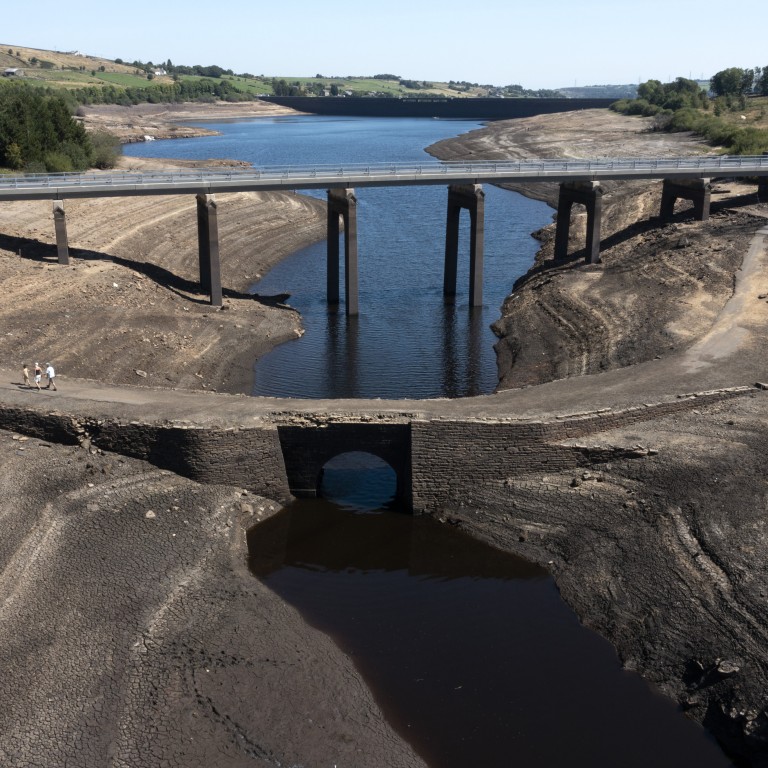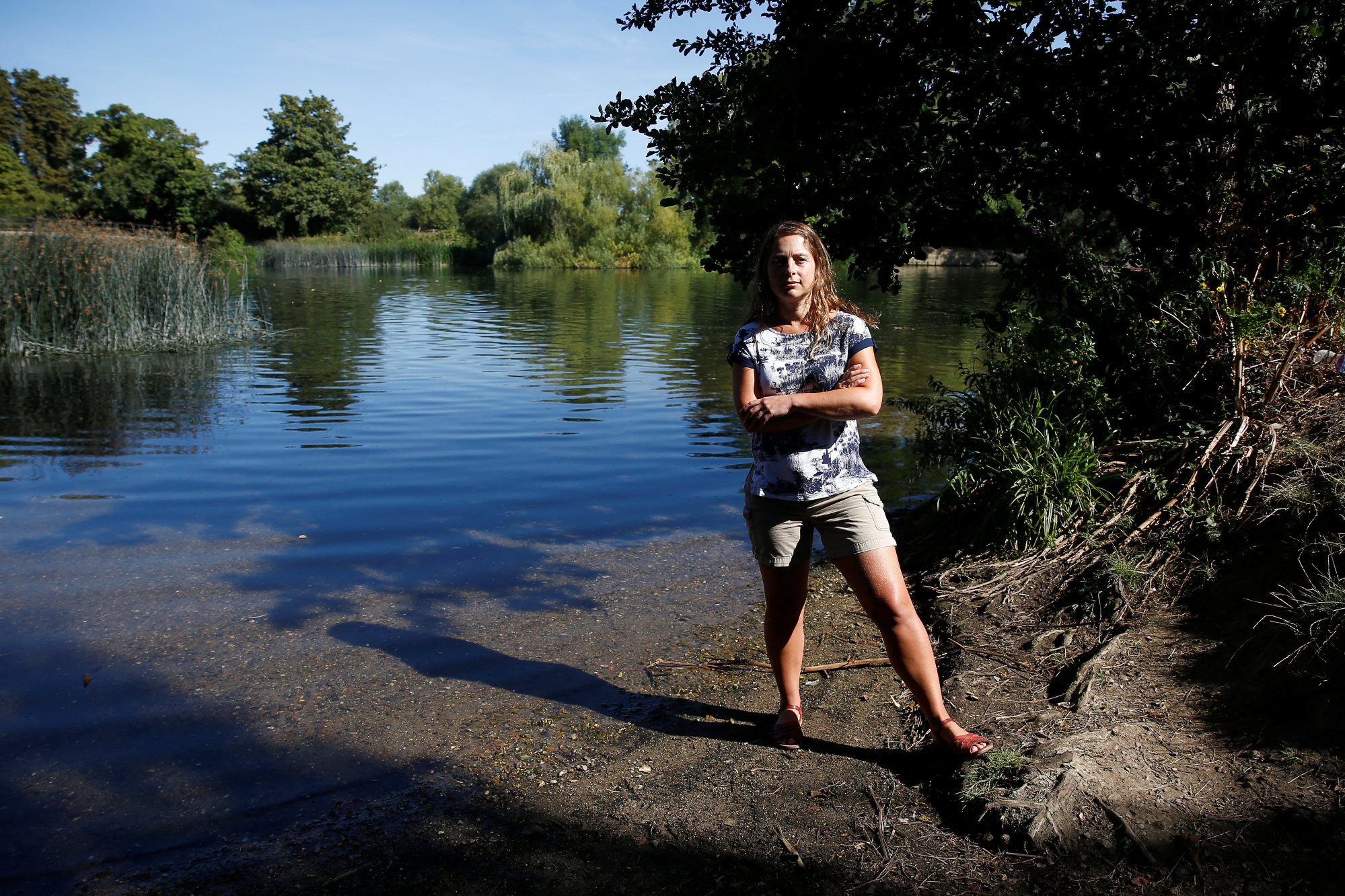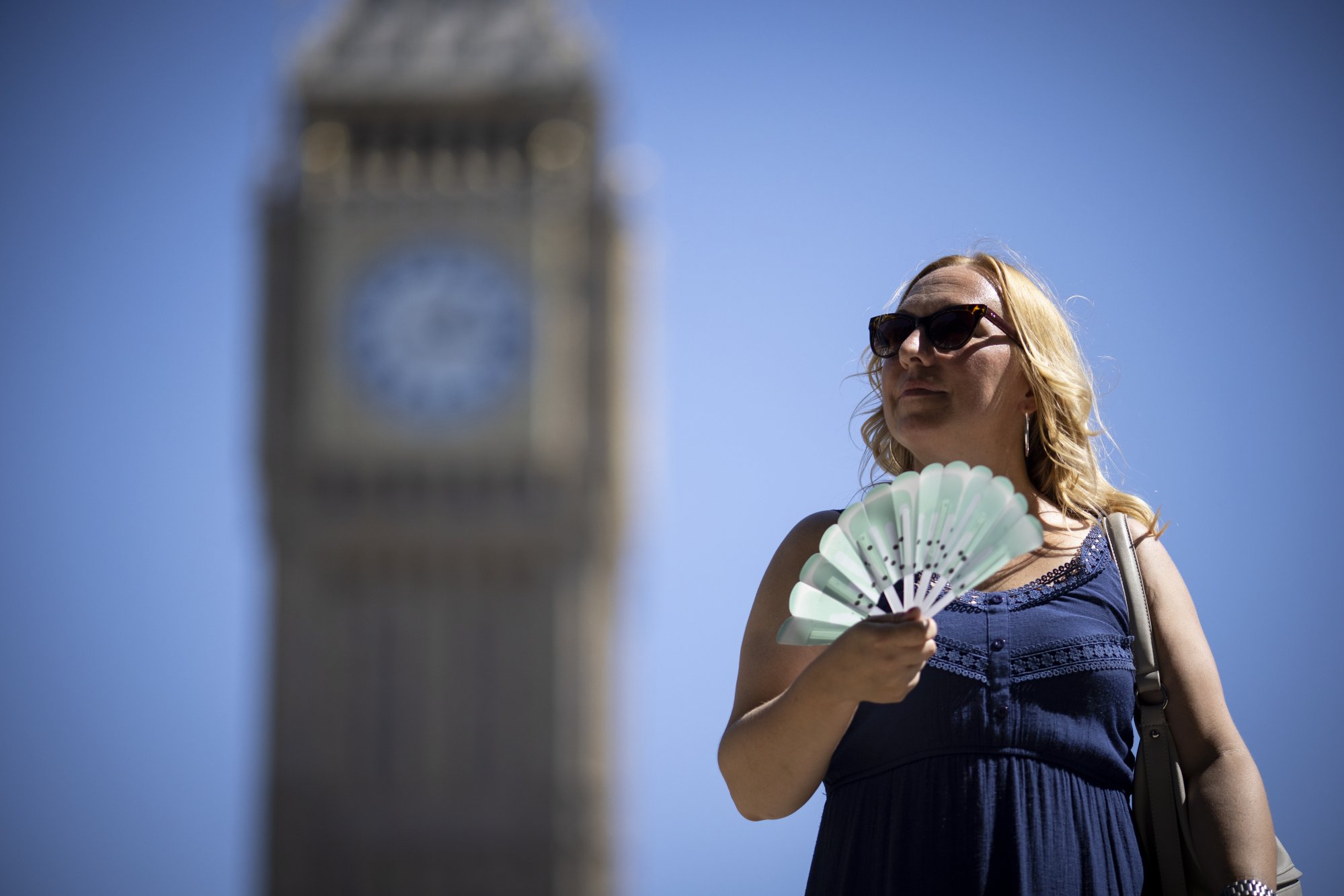
If little rain, drought-hit England could face ‘dreadful’ 2023 summer
- London set for hosepipe ban from August 24 after water company warned that water resources are ‘depleted’
- England, which recorded its driest July since 1935, is officially in a drought across vast swathes of the country
In London, saving water is taking on a sense of urgency amid the driest and hottest summer in decades. That’s because next year could be worse.
From next Wednesday, people in Britain’s capital will be banned from using hosepipes – commonly used to water gardens, wash cars and fill up paddling pools – as water restrictions kick in.
The ban potentially marks the first of more water saving measures to come, after a drought was declared in most parts of England last week.
The declaration followed England’s driest July since 1935, and after temperatures breached 40 degrees Celsius (104 Fahrenheit) for the first time.
Once green parks, gardens and fields are now parched and brown after the first six months of the year saw the least amount of rainfall since 1976.
With low rainfall forecast for the coming months, water companies are taking steps to protect water supplies to avert a potential bigger crisis next summer.
Europe suffers massive wildfires, dying fish amid severe drought
“If we don’t get substantial amounts of rain in the next few months and we go into a dry winter, then come this time next year, we will be in a dreadful position,” Hannah Cloke, a professor of hydrology at the University of Reading, and one of the UK’s leading water experts told South China Morning Post.
Thunderstorms lashed England on Wednesday, but that won’t end the drought.
“Across the UK as a whole there was a lot of rain – and some parts of Scotland are almost back to normal – but in the south and east it will remain dry,” a spokesperson for the Met Office, the UK’s meteorological authority, said.
“Doors are now open for more rainfall, but it’s going to have to be a lot of rain to get back to the levels we have foregone, but it can happen.”
Climate change is making conditions worse as heat speeds up water evaporation. It’s so dry that the River Thames has reached its lowest level in 17 years, starving reservoirs in the Thames Valley and London.
That forced Thames Water, which supplies 15 million people in London and some surrounding counties to announce a hosepipe ban, the sixth water company to do so.
Household water restrictions are in place or expected in some areas outside London.
“Water resources in our region are depleted,” Thames Water CEO Sarah Bentley said.
England is not the only country to have suffered from this summer’s scorching temperatures, but it has unique problems.
“The way we use water in this country is astounding,” Cloke said.
Possible human extinction a ‘dangerously underexplored topic’
“Other countries in Europe don’t use drinking water to flush their toilets or water their gardens.”
The UK is currently struggling on many fronts, including the drought in England. Expensive energy prices, a shrinking economy and surging inflation are creating a cost of living crisis that’s expected to get worse.

Much of the UK’s agriculture is dependent on high water usage. The country’s traditional strength in the dairy sector stems from the fact it has lush, green grass. Potatoes also need a lot of water.
Drought was last officially declared in England in 2018. In the 1976 drought, considered among the worst in recent memory, roadside standpipes and water rationing needed to be introduced.
“This is not the first drought we’ve had in this country and we should be better prepared,” Cloke said. “We would have been OK if we had used the water more carefully. The figures on wastage are huge.”
Protesters in UK decry climate change after record heatwave
Thames Water has admitted it loses more than 600 million litres of water a week, mostly because of old pipes.
It is estimated the daily loss for England and Wales combined is around 3 billion litres a day, a fifth of the total supply.
Water in Scotland is still managed by the local authority, but in England it was privatised in 1989 by then Prime Minister Margaret Thatcher.

There are nearly 20 water companies in the UK. Around 70 per cent of them are owned by foreign investors, according to a 2018 report by the GMB trade union. Malaysia’s YTL Power owns one company, Wessex Water.
Thames Water is owned by a consortium of overseas investors and sovereign wealth funds. China Investment Corporation has an 8.8 per cent stake.
Critics say privatised companies have focused too much on paying their executives and shareholders huge sums of money, and not enough on investment in infrastructure.
Top banker quits HSBC after suspension over climate-change comments
The companies deny this. Thames Water said it has hundreds of teams focused on locating and fixing leaks.
Others blame Ofwat, the Water Services Regulation Authority, for not being tough enough on companies that do not meet standards or mend leaks.
Even so, the last reservoir to be built in the UK was 30 years ago.
Earlier this year there was a public outcry over the state of the UK’s polluted rivers, with unique and delicate chalk stream ecosystems under threat.
Politicians from the ruling Conservative Party say sorting out the UK’s water woes should be a top priority for whoever replaces Boris Johnson as prime minister.
The winner of the UK leadership contest, Foreign Secretary Liz Truss or the former chancellor of the exchequer Rishi Sunak, will be announced on September 5.
“We’ve got a number of different pressure points coming into bear on the water companies at the moment and on the regulators,” said MP Philip Dunne, chair of parliament’s Environmental Audit Committee. “Directors’ bonuses are in the frame and there is also talk of corporate sanctions.”
Chief executives of water companies were expected to meet Environment Secretary George Eustice next week for the second time this month.
Additional reporting by Bloomberg and Agence France-Presse


